Hey, Paweł here. Welcome to the free edition of The Product Compass.
Every week, I share actionable tips to boost your PM career.
One of the top three problems I help with premium subscribers on Slack is breaking into product management.
So, in today’s issue:
Career paths, recommended steps, and red flags for each role
The next steps you can take
1. Career paths, recommended steps, and red flags for each role
Here’s an overview of roles and transitions I discuss in this point:
Let’s dive into them one by one:
College / University: How to become a Product Manager without experience?
For graduates, the best starting points include roles such as Engineer, Data Scientist, Aspiring Product Manager, Marketer, Designer, Support, and Success. Sales is also an option, though it may not suit everyone.
Each of those roles has a clear path to becoming a Product Manager.
I do not recommend:
Becoming a Junior Project Manager: You might learn bad practices you will have to unlearn later in your career and set you on a path to project management.
Becoming a CEO / Founder: You do not have enough experience, and building a startup just to become a PM is not the right move. If you fail, you will lose money and energy. If you do the impossible and succeed, you will be “overqualified to become PM.” Still want to build a company without experience? I recommend doing it for a better reason.
Junior Project Manager
You most likely started learning bad practices and already have a “project” label. But you are young and have relatively little to lose by switching the career path.
So, the best you can do is steer your career into product management by becoming an Aspiring Product Manager.
You might also try yourself in other fields like Marketing, Support, or Success.
I do not recommend continuing the project management path, even though it might eventually allow you to transition into product management.
Project Manager / Business Analyst
You invested a lot of time in project management. So, a viable option might be to become a Senior Project Manager / Program Manager, especially if you do not want to compromise your income. Even as a Project Manager, you might shift your focus to outcomes and empower others rather than lead with control.
You also already have many transferable skills: managing stakeholders, working with cross-functional teams, dealing with complexity, and domain expertise. In some companies, it would be enough for the internal promotion into the Product Manager role.
A tough compromise might be transitioning into a Product Owner role (“backlog administrator”) to eventually become a Product Manager through internal promotion.
Program Manager / Senior Product Manager
People with this job title commonly fail to emphasize their unique, transferable skills and experience.
But you most likely have many skills to become a Product Manager, and you can fill the missing gaps (Product Discovery and sometimes your leadership style).
Consider your strengths and unique skills and target your search to companies that value them the most.
Software Engineer / Data Scientist
A technical background is a precious skill.
The easiest, recommended, and natural path is becoming a technical leader, for example, a Principal Engineer, Engineering Manager, or Team Leader. This will allow you to learn how to communicate with stakeholders and gain more trust within the organization.
On top of that, by collaborating closely with the Product Manager and Designer, you will be able to immerse yourself in Product Discovery - the most critical area for a Product Manager.
Principal Engineer / Engineering Manager
The most straightforward option I recommend is seeking an internal promotion to a Product Manager role.
If you do not have that opportunity in your current organization, find another one.
Remember to communicate your “long-term” goals and ensure this path is possible. Can they give you an example of a similar promotion that happened in the past?
Aspiring Product Manager
The natural path is continuing your product management career by becoming a Product Manager.
If, for whatever reason, you struggle with that and have exhausted all other options, you might consider becoming a Product Owner (“backlog administrator”).
Product Owner
Companies that have a Product Owner role are far from ideal. But the good news is that they all have Product Managers.
With the right product skills and attitude, the transition to a Product Manager can be done in a few months.
Get promoted, work as a Product Manager for some time, and then consider changing the organization to a better one.
CEO / Founder
Like it or not, you are overqualified in the recruiters’ eyes. I struggled with the “overqualified” label a lot.
Recruiters look for a candidate that matches their imaginary, ideal profile. They do not understand you might have all the skills and experience. They don’t have time to care how complex, challenging, and difficult running your company has been and that becoming a Product Manager might be a conscious career choice.
Depending on your background, you might consider becoming a Product Marketing, Support, Sales, or Customer Success Manager or joining a startup as a Product Manager.
A tough compromise might be transitioning into a Product Owner role (“backlog administrator”) to eventually become a Product Manager through internal promotion.
Marketing / Designer
Those roles are closely related to product management.
If you’ve been working in a Product Trio, you already immersed yourself in Product Discovery - the most critical area for a Product Manager.
The easiest choice is to become Product Marketing Manager or Design Manager. Those roles will allow you to communicate with more stakeholders, gain a better business overview, and build trust within the organization.
Depending on your experience, you might also try to become a Product Manager through internal promotion.
Support / Success / Sales
Those roles work with Product Managers, though transitioning from them is more challenging than from marketing or design.
Becoming a Support, Success, or Sales Manager might be the easiest option. This will allow you to communicate with more stakeholders, get a better business overview, and gain more trust and influence within the organization.
Depending on your experience, you might also try to become a Product Manager through internal promotion.
(Marketers might also consider a Growth Product Manager role)
Marketing / Design / Support / Success / Sales Manager
In these roles, you are well-positioned to internally transition into product management due to your skills in communication, understanding customer needs, and understanding various aspects of the business.
Sales, Success, and Support Managers might need to fill the missing gaps, primarily around Product Discovery.
In each of those roles, you might also consider joining a startup as a Product Manager.
(Marketing Managers might also consider a Growth Product Manager role)
2. The next steps you can take
Step 1: Ensure you understand product management
To make the transition, focus on building a deeper understanding of good product management. A free post:
Step 2: Identify your knowledge gaps
You can take those free skills assessment surveys that will provide you with feedback and the recommended learning resources:
You might also check:
Step 3: Be hyper-proactive
To be considered a candidate for internal promotion, engage in product discussions, and volunteer for cross-departmental initiatives.
Help your Product Manager in any way possible by participating in the Product Trio, interviewing customers, suggesting ideas, planning experiments, analyzing data, or performing market research.
This will enhance your product experience and demonstrate your interest.
Step 4: Traditional advice vs strong connections
I don’t believe in traditional advice:
Building a vast LinkedIn followers base. All creators I’m in contact with learned to hide/minimize that in their resumes. It doesn’t help us.
Building a product as a solo entrepreneur. What you can learn that way is marketing and growth. But most likely, there will be no stakeholders, engineers, or designers to collaborate with. So if you want to build a product, I recommend doing it for a better reason.
What works:
Building super strong connections with a small network of professionals. More than 10-20 will probably be too much.
Building a few super strong connections and friendships within your organization.
Step 5: Adjust your resume and narrow down your search
When writing a resume, what many people miss is framing their unique experience and transferable skills in the right way.
Before doing it, take a piece of paper and note:
What are five things at which you excel?
What's your unique experience that others on the market might not have? Those might be hard skills (e.g., AI), a specific domain (e.g., Tourism), or a specific product type (e.g., Gym Management App).
Then think about:
Specific situations/facts/achievements that prove this.
Specific, measurable outcomes or stories that come to your mind that support your claims.
Next, adjust your resume. I described how to do it in this post:
Finally, with the proper resume and cover letter, you can narrow down your search to companies to which your unique skills would contribute the most:
Reach out to hiring managers on social media.
Send a resume and a cover letter even without a job offer.
Contact people from those companies on LinkedIn.
Track and refer to the news they publish.
Emphasize your unique value, experience, and motivation other candidates won't offer.
As a premium subscriber, you can contact me on Slack, submit your questions and resume, and get my free advice anytime.
Some of the quotes:
I believe that anyone can become a Product Manager. All it takes is setting a goal and consciously planning your career.
Remember, without a regularly reviewed and adjusted plan, you will end up executing others' plans and chasing their goals.
Don't let that happen.
Recommended Resources
Enjoy this? You might also benefit from:
What is Product Management: After reading this post, you will understand the difference between product and project management, what a Product Manager does, and the various product roles.
Product Owner vs Product Manager: Why it’s so critical for a PM to have direct access to customers, stakeholders, engineers, and designers. Without proxies.
How to Ace Your Product Manager Resume: 12 principles of writing a killer PM resume.
How to Land a PM Interview: A Step-by-Step Guide: In this post, I shared the steps that will allow you to secure your PM interview together with an ATS-verified and A/B-optimized resume template.
How to Ace Your First PM Interview: 9 techniques I used to get 4 job offers and 10+ advanced processes in just 3 weeks.
Thanks for reading The Product Compass
Do you find this issue valuable?
Share it with your friends so we can learn and grow together:
Have a fantastic weekend and a productive week ahead.
Take care, Paweł

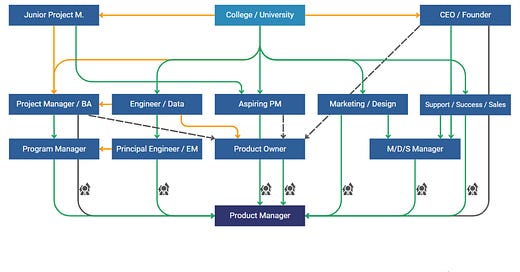


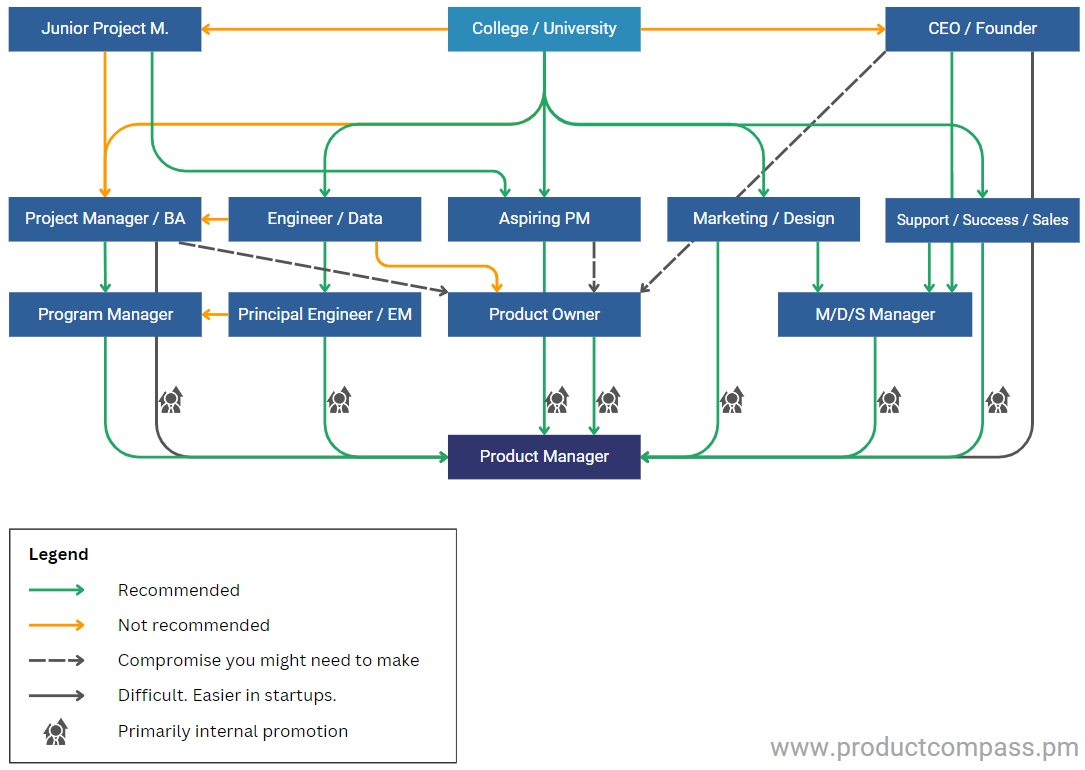
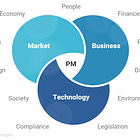
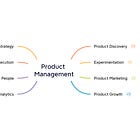
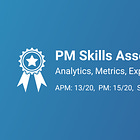
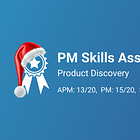
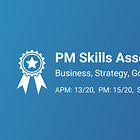
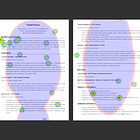



Useful reading. What might further help is to perhaps have a description around each of the defined roles especially some ambiguous ones which may be used very differently across organizations. For example, I know how the Product Owner role is generally used across organizations and I agree that it isn't ideal to have such a role but I also know that at some places for very large and complex products, the product owner is essentially someone who 'owns' the whole product with many product manager working with him in the team who own the sub-products within the main product.